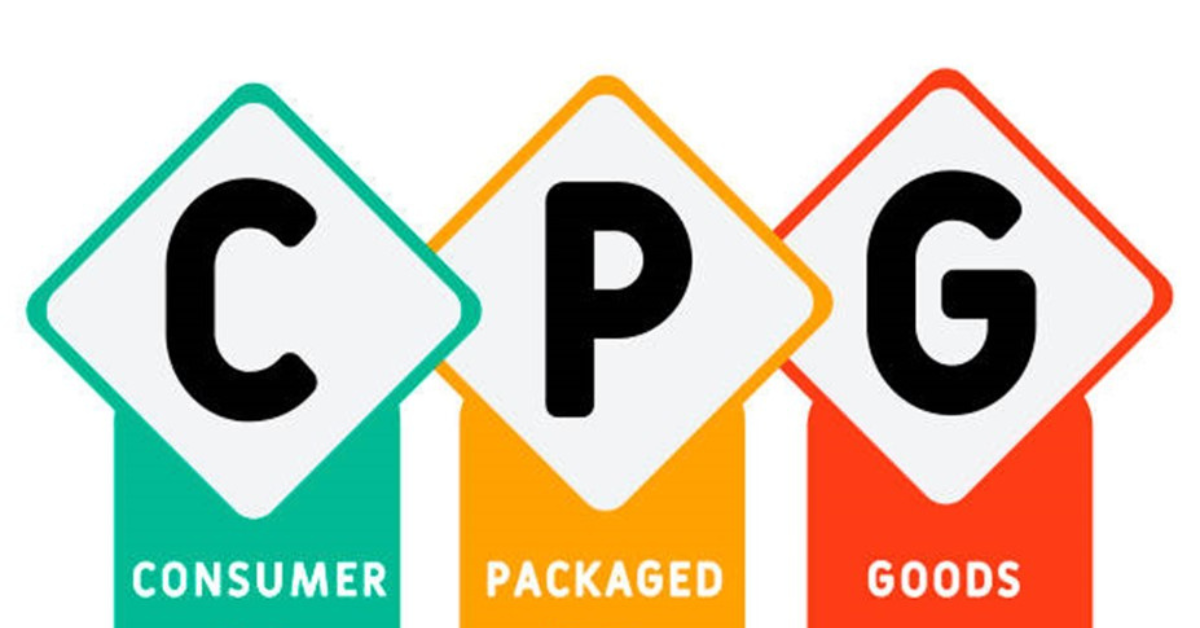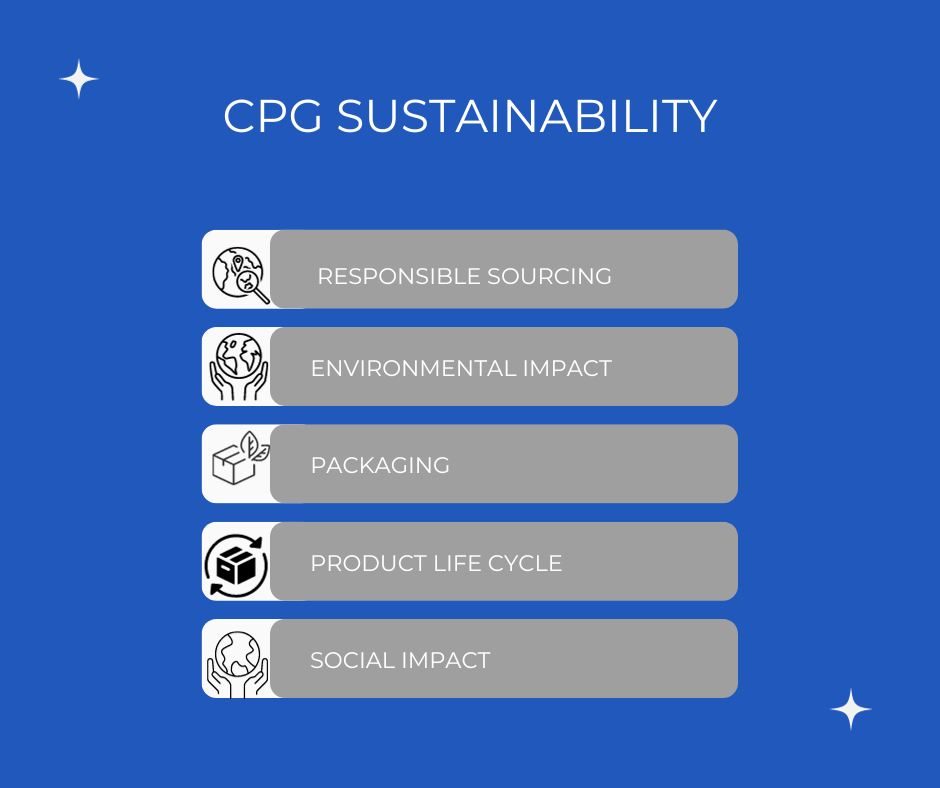Contact: +91 99725 24322 |
Menu
Menu
Quick summary: Explore the Evolution: Learn how CPG Companies are Adapting to Environmental Change. Dive into our blog to understand the strategies, challenges, and transformative initiatives embraced by Consumer Packaged Goods (CPG) companies in response to environmental shifts. Uncover the role of sustainability, technology, and innovative practices in navigating the path towards a greener future for the CPG industry.

In an era marked by heightened environmental awareness and a growing commitment to sustainable practices, Consumer Packaged Goods (CPG) companies find themselves at the forefront of transformative change. The traditional narrative of consumption is undergoing a significant shift as CPG companies embrace environmental responsibility, recognizing the imperative to align business practices with ecological well-being.
The 21st century has witnessed a seismic shift in consumer expectations and corporate responsibility, with a profound emphasis on environmental sustainability. In this era of heightened awareness, Consumer Packaged Goods (CPG) companies find themselves at the forefront of change.
According to Consumer Goods Technology, the CPG industry is poised for a change. And that’s a good thing, given that the production of food and consumer goods accounts for 60% of greenhouse gas emissions, 80% of water usage, and 66% of tropical forest loss.
This blog explores the dynamic landscape of how CPG companies are proactively addressing environmental challenges. From innovative packaging solutions and carbon footprint reduction strategies to responsible sourcing and heightened consumer engagement, discover the pivotal role these companies play in fostering positive environmental change. Join us on a journey to unravel the initiatives, strategies, and impactful measures undertaken by CPG leaders in their pursuit of a more sustainable and eco-conscious future.
The consumer-packaged goods (CPG) industry stands as one of the largest and most influential sectors globally, annually producing billions of products spanning food, beverages, personal care items, and household goods. In response to an escalating consumer demand for sustainability, there is a heightened expectation for companies within the CPG industry to adopt eco-friendly practices and exhibit environmental responsibility. This shift has propelled CPG companies beyond merely delivering quality products to assuming accountability for their operational impact on the environment. Consequently, undertaking a sustainable transformation has become imperative for CPG firms to maintain competitiveness in the present-day market.
The global landscape is undergoing a metamorphosis, with a growing consciousness toward ecological well-being. Environmental sustainability has become a non-negotiable aspect of corporate responsibility, driven by increasing consumer demands for eco-conscious products and practices.
CPG companies, given their colossal influence on consumer behavior and global supply chains, have emerged as pivotal actors in steering environmental change. The choices they make reverberate across industries, making them central to the transformation towards a more sustainable and eco-friendly future.

One of the cornerstones of environmental change within CPG companies is the recalibration of packaging materials. A significant shift towards eco-friendly alternatives is observed, marking a departure from traditional materials that contribute to pollution and resource depletion.
In tandem with the shift in materials, CPG companies are embracing innovative packaging designs that prioritize waste reduction. From minimalist designs to multifunctional packaging, these innovations aim to minimize environmental impact while maintaining practicality and appeal.
Real-world examples provide tangible insights into the efficacy of sustainable packaging strategies. Case studies of CPG companies that have successfully implemented and navigated sustainable packaging initiatives offer valuable lessons for the wider industry.
By aligning with consumer values and meeting sustainability expectations, brands can boost their reputation, distinguish themselves from competitors, and appeal to environmentally conscious consumers. Sustainable packaging additionally contributes to cost savings by minimizing material usage, optimizing logistics, and streamlining operations.
Commitment to Ethical and Sustainable Sourcing Practices
The commitment to sustainability extends beyond packaging to the very core of products – the ingredients. CPG companies are increasingly pledging to ethical and sustainable sourcing practices, ensuring that the raw materials used are not only high in quality but also procured in an environmentally responsible manner.
Transparency is a cornerstone of sustainable practices. CPG companies are investing in traceability initiatives, leveraging technology to provide consumers with a window into the journey of their products – from farm to shelf. This not only builds consumer trust but also encourages responsible sourcing practices throughout the supply chain.
By showcasing examples of CPG companies championing responsible sourcing, we shed light on the tangible impact of such commitments. From fair trade practices to partnerships with local communities, these companies exemplify how responsible sourcing can be a catalyst for positive change.
Energy efficiency is a key pillar of CPG companies’ sustainability initiatives. This involves a strategic overhaul of manufacturing processes to minimize energy consumption, often achieved through technological advancements and process optimization.
The adoption of renewable energy sources is gaining momentum within the CPG sector. Companies are increasingly turning to solar, wind, and other renewable sources to power their operations, significantly reducing their carbon footprint.
Reducing carbon emissions requires a holistic approach. CPG companies are implementing strategies encompassing not only production but also distribution, including the use of electric vehicles, optimized logistics, and innovative packaging designs that reduce transportation-related emissions.
The transition from a linear to a circular economy is a transformative journey. CPG companies are integrating circular economy principles into their business models, promoting the reuse, recycling, and regeneration of materials to minimize waste.
By 2040, compared with business as usual, a circular economy has the potential to reduce greenhouse gas emissions from the production, use, and end-of-life of plastics by 25%
To minimize product waste, CPG companies are introducing initiatives that extend product life cycles. From designing products for longevity to actively promoting recycling programs, these initiatives contribute to a more sustainable and circular product lifecycle.
Effective waste management often requires collaboration with various stakeholders. CPG companies are forging partnerships with suppliers, retailers, and waste management organizations to create comprehensive waste management strategies that address the entire product life cycle.
Open and honest communication is integral to building trust. CPG companies are committing to transparent reporting, sharing not only their successes but also the challenges they face in their journey towards sustainability.
To align with global standards and benchmarks, CPG companies are adopting sustainability frameworks and certifications.
These certifications serve as a testament to their commitment to environmental stewardship, providing consumers with confidence in their choices.
Corporate reporting plays a pivotal role in building consumer trust. By sharing comprehensive and transparent reports on their environmental practices, CPG companies foster a sense of accountability, allowing consumers to make informed and conscientious choices.
Embracing environmental change poses a set of challenges for Consumer-Packaged Goods (CPG) companies as they navigate the complexities of sustainability. Some key challenges include:
Blockchain and other traceability technologies enhance visibility across the supply chain. CPG companies can track the environmental footprint of products from raw material sourcing to end-user consumption. This transparency aids in implementing and enforcing sustainable practices at every stage. Technology facilitates the adoption of innovative, sustainable practices. From using advanced materials in packaging to implementing energy-efficient manufacturing processes, emerging technologies contribute to reducing the environmental impact of CPG operations. Cloud-based collaborative platforms enable effective communication and collaboration with suppliers, distributors, and other stakeholders. These platforms facilitate shared goals, commitments, and real-time information exchange to drive collective sustainability efforts.
By leveraging TraceX’s comprehensive suite of solutions, CPG companies can not only address environmental challenges effectively but also demonstrate a tangible commitment to sustainability, traceability, and carbon management across their entire supply chain.
The comprehensive exploration of how CPG companies are embracing environmental change underscores the industry’s commitment to sustainability. From sustainable packaging to responsible sourcing, energy efficiency, waste reduction, and transparent reporting, CPG companies are reshaping their practices to foster a greener and more sustainable future. As consumers increasingly prioritize eco-friendly options, CPG companies stand at the forefront, leading the charge towards a more environmentally conscious world. The journey is ongoing, but the strides made thus far indicate a positive and promising trajectory towards a sustainable future led by the conscientious practices of CPG companies.
